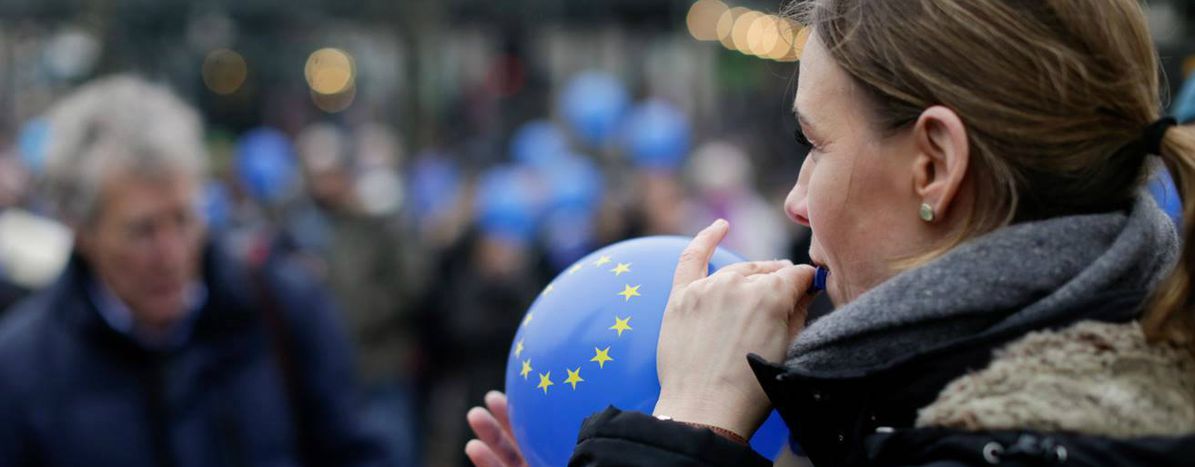
Pulse of Europe: "Europe is the solution"
Published on
Translation by:
Paweł WiejskiNavy blue flags, the Ode to Joy and a lot of enthusiasm. Every Sunday, people in dozens of cities hold demonstrations of support for the European project. In times of populism and euroscepticism, who still believes in the EU? Meet Pulse of Europe.
It all started in Frankfurt. In November last year, a pair of lawyers decided to get up off the couch and save Europe. Donald Trump's election was the straw that broke the camel's back, but other factors weighed in as well; especially the Brexit referendum and general feeling of euroscepticism and populism rising across the Old Continent.
The first demonstrations in Frankfurt and Freiburg saw dozens of attendees. Organisers decided to follow through, and turned Pulse of Europe into a weekly event. Using their business and personal contacts, and social media, they managed to organise demonstrations in more and more cities each Sunday. Soon enough the movement spread abroad, reaching Amsterdam, Vienna and Paris.
"Organisers from Frankfurt called me one day and told me that we have to do something in France as well," says Aurélien, coordinator of Pulse of Europe France. "We started from Paris and then, as it was the case in Germany, people from other cities started calling and offering help."
Soon, the movement reached Strasbourg, Montpellier, Lyon and Toulouse. Attendance, like elsewhere in Europe, was varied. Demonstration in Frankfurt or Berlin can attract thousands of people; in other cities it’s usually much lower. Aurélien, however, is full of hope: "To be honest, even if just a few hundred people people show up, it’s already not bad. The idea is to have more people each week. That’s what’s happening in Germany, and that’s what will happen in France."
These numbers pale into insignificance when compared to recent mass demonstrations like those which took place last month in Romania. Perhaps ideas embodied by the European Union are just too abstract to motivate people? "I strongly disagree," says Aurélien. "There is nothing more concrete than these ideas. Take peace, for example. If someone has any doubts, how concrete is war, they should pay more attention to what’s happening in Ukraine, or remind themself of what was going on in the former Yugoslavia not so long ago. Yes, peace doesn’t seem abstract to me, not to mention other values: freedom, human rights…"
Despite the low turnouts, Pulse of Europe gatherings are always colourful and loud. People dressed in blue and gold sing the Ode to Joy (the anthem of the European Union) and wave the European flag. According to Aurélien, the enthusiasm is understandable: "The idea is to give a platform for people, who are for Europe, who want to defend Europe. They are not sufficiently represented today. Politicians from a lot of countries, including France, present Europe as a problem, not as a solution."
Their love for Europe is not blind, however: "Pulse of Europe also believes that the EU can and should be criticised and reformed. There are problems, things that do not work. The Union has been out of touch with its citizens for a while now, and it’s a real issue. The goal of our movement is to stop 'Brussels bashing', especially since we all know that the important decisions are taken by governments, not by eurocrats. Politicians should concentrate on making our Europe more efficient instead," he sums up.
Pulse of Europe is not the only pro-European initiative to emerge in recent months. To commemorate the 60th anniversary of the Rome Treaty, one of the fundamental treaties in the history of European integration, a March for Europe will take place in the Italian capital.
Translated from Pulse of Europe: Europa jest rozwiązaniem



